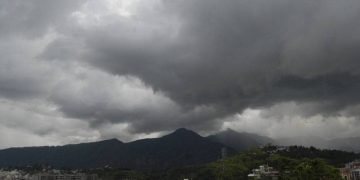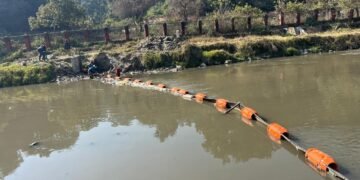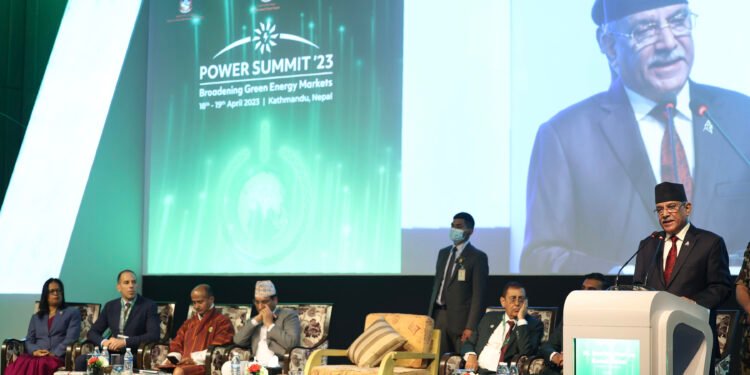KATHMANDU: Despite the fact that green energy is a critical need to address environmental challenges, the government of Nepal faces challenges that can hinder its ability to promote and remain committed to it.
Among others, the government faces challenges such as political and economic pressures, concerns about cost and affordability, infrastructural and technological limitations, and geopolitical considerations.
However, Nepal’s Prime Minister Pushpa Kamal Dahal Prachanda in his address to the Power Summit 2023 in Kathmandu on Tuesday asserted that the government “recognized” the energy sector as one of the major areas that can lead the country to develop a strong base for prosperity.
In the Power Summit 2023 organized jointly by the Independent Power Producers Association of Nepal and the Government of Nepal with the theme ‘Broadening Green Energy Markets,” PM Prachanda stressed that green energy would be both a means and also a product that would enable Nepal to make the transition to a strong economy.
The Prime Minister took the opportunity to assert that the Nepal Government took pride in announcing to the world that Nepal today generates more power than it consumes seasonally.
Unfortunately, quite a significant number of Nepalis still do not have access to green energy though he pointed out the need to continue to expand the grid as well as adopt off-grid technologies to make electricity available to all people of the country.
The government must understand that overcoming all challenges and ensuring the sustained promotion of green energy requires a collaborative effort from all sectors, including the government, stakeholders, as well as the people towards a more sustainable and green future.
What the Government of Nepal or the Prime Minister needs to understand is that the government’s decision to promote green energy is basically influenced by political and economic pressures.
For instance, fossil fuel traders are likely to lobby against green energy initiatives owing to several factors such as market share, loss of revenue, as well as job displacement.
Therefore, the government may even hesitate to commit to green energy policies.
Another factor is the cost and affordability since switching over to green energy sources such as wind, solar, batteries, and hydroelectric power requires substantial upfront investments both in technology and infrastructure, which a country like Nepal may not be able to afford due to lack of financial resources.
The government also needs to consider the technological and infrastructural limitations such as the energy sources like wind, and solar or even the insufficient charging stations due to which even electric vehicles are facing hardship.
However, it is ear soothing to hear from the Prime Minister that due to the accelerated pace of development of hydropower projects both from IPPs and state utilities, the government of Nepal anticipates being a net exporter of electricity by 2025 without any need to import even in the dry season.
“We also know that many industrial demands are ready to be created if we can expand transmission and distribution lines and ensure a stable power supply,” he said, adding, “We should understand that the use of generated electricity in our own domestic market is our key priority as we aspire to be economically prosperous.”
Prime Minister Prachanda was also right to say that until “we build enough infrastructures to utilize the generated electricity internally we need to export it to protect the huge investments already incurred in the generation side.”
He emphasized engaging ourselves in the cross-border power trade in view of utilizing cheap and diverse resources existing in the region and sub-region.
While the export of surplus energy from Nepal needs to be on the table, he highlighted four sectors that can consume electricity heavily and increase the per capita consumption.
According to him, this will also mitigate Nepal’s dependency on imported fossil fuels and huge trade deficit.
Among the four sectors highlighted by Prime Minister were: agriculture, industries that still rely on diesel and coal as well as biomass that pollute our environment, cooking and transportation.
He said while over 65 percent of Nepalese are engaged in agriculture, it contributes less than a quarter of our GDP and has a huge potential for growth.
The Prime Minister also reiterated that the Government of Nepal would work to ensure that industries across Nepal have access to green energy priced at competitive rates.
“If we can get all Nepalis to cook with green energy, it will contribute to protecting our forests, and also greatly reduce our dependence on imported LPG,” he asserted.
According to Prime Minister Prachanda, the import of vehicles may continue but Nepal can make a transition to electric modes of transport so that the import of fossil fuels declines and this contributes to mitigating the adverse impacts of climate change.
Stating that Nepal has a very clear opportunity to attain the goal of becoming net zero by 2045, PM Dahal said, “Given that we are endowed with enormous hydro and solar power potential, we can not only fulfill our international commitment of transition to clean energy but also can support our neighboring countries to meet their emission reduction targets by exporting our electricity.”
To meet these commitments, the government and the private sector need to focus on the qualitative development and transformation of the energy sector through collaboration.
If not, the Power Summit 2023 cannot help broaden green energy markets!



















